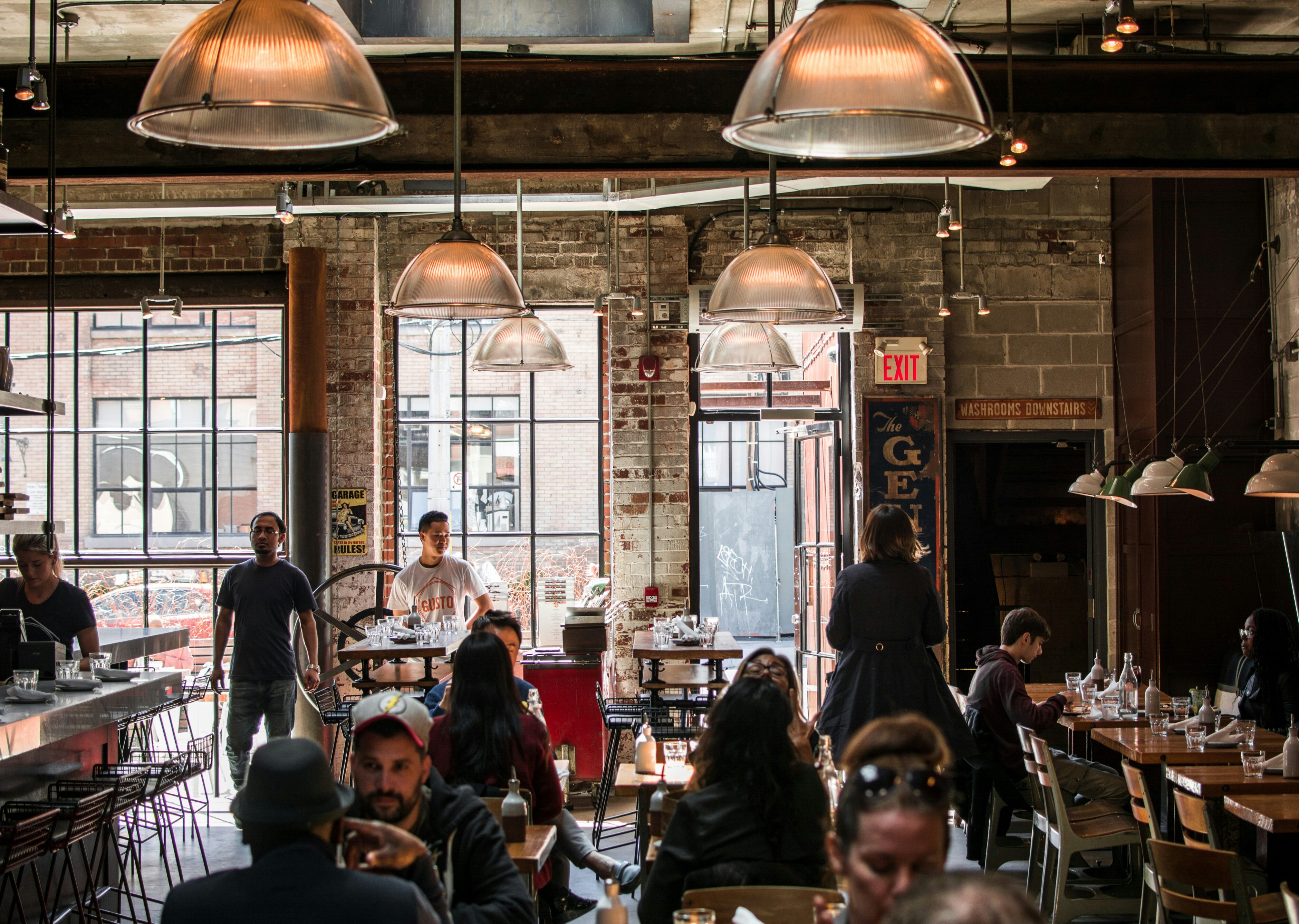THE GREEN LINE
ORIGINAL STORY
SCARBOROUGH CYCLES BRINGS BIKING TO THE 'BURBS
The Green Line team visited Golfdale-Cedarbrae-Woburn to learn how one local bike hub is filling in transportation gaps.
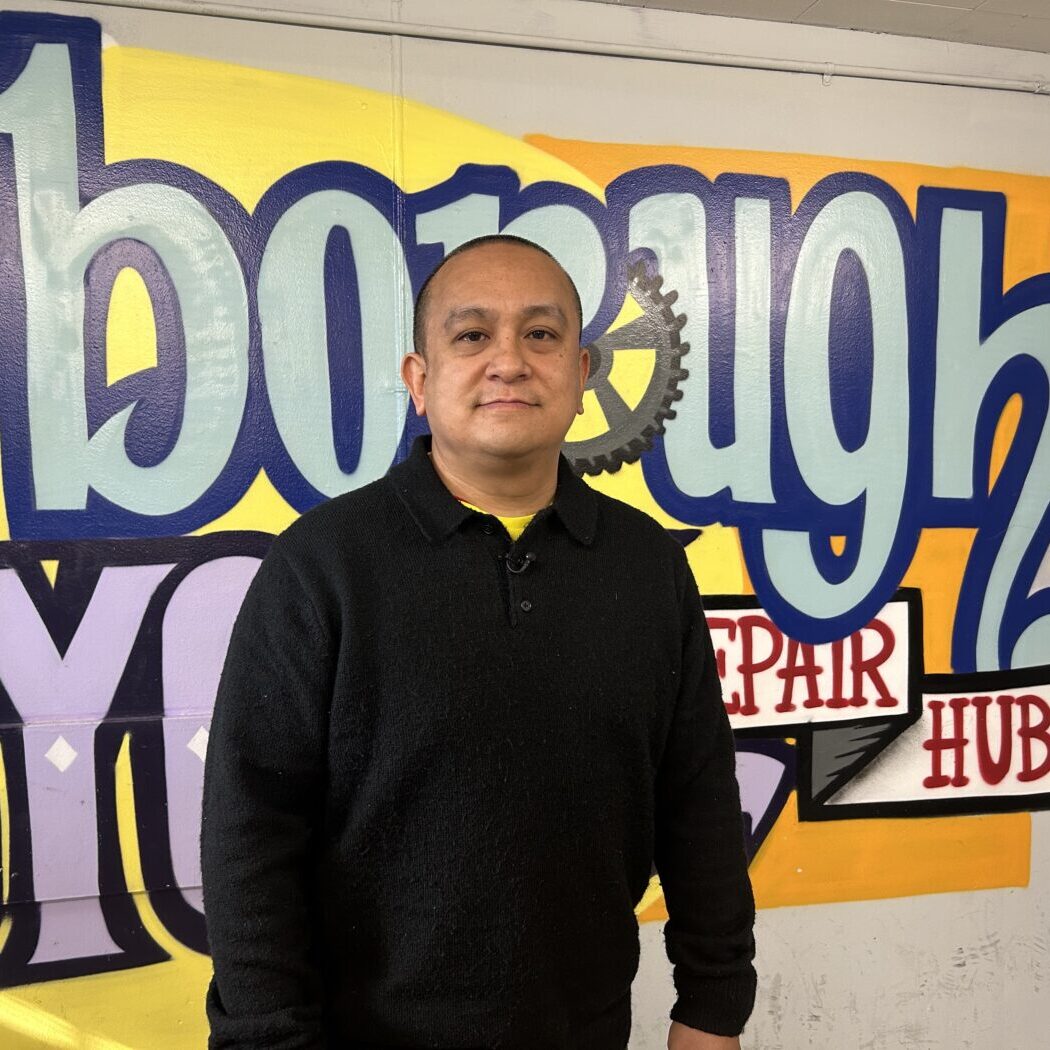
Marvin Macaraig, coordinator of Scarborough Cycles, stands in the Lawrence-Orton Bicycle Repair Hub.


ANEESA BHANJI
Currently a journalism student at Toronto Metropolitan University who's also studying communication and design. Grew up in Vaughan, now living in downtown Toronto. Always loves a good chai latte.

AMANDA SERAPHINA JAMES RAJAKUMAR
Indian immigrant with a post-grad in journalism from Centennial College. Now living in Grange Park, meeting new people, and hearing different stories. Has four names, so it’s a pick-your-player situation.
March 22, 2024
When you think of getting around in Scarborough, biking isn’t probably the first option that comes to mind.
That’s why one local group is working to bring bike culture to the ‘burbs.
Scarborough Cycles is a bike hub in Golfdale-Cedarbrae-Woburn run by community health centre Access Alliance, and funded by the City of Toronto. It lends out bikes and fixes them up for locals who need a ride. Supported by Toronto Community Housing, Scarborough Cycles also has a range of programs, including drop-in clinics, workshops and group rides.
The hub uses a sustainable model by taking bikes that are bound for landfills, and repairing them for the community, which fills a much-needed gap in the neighbourhood.
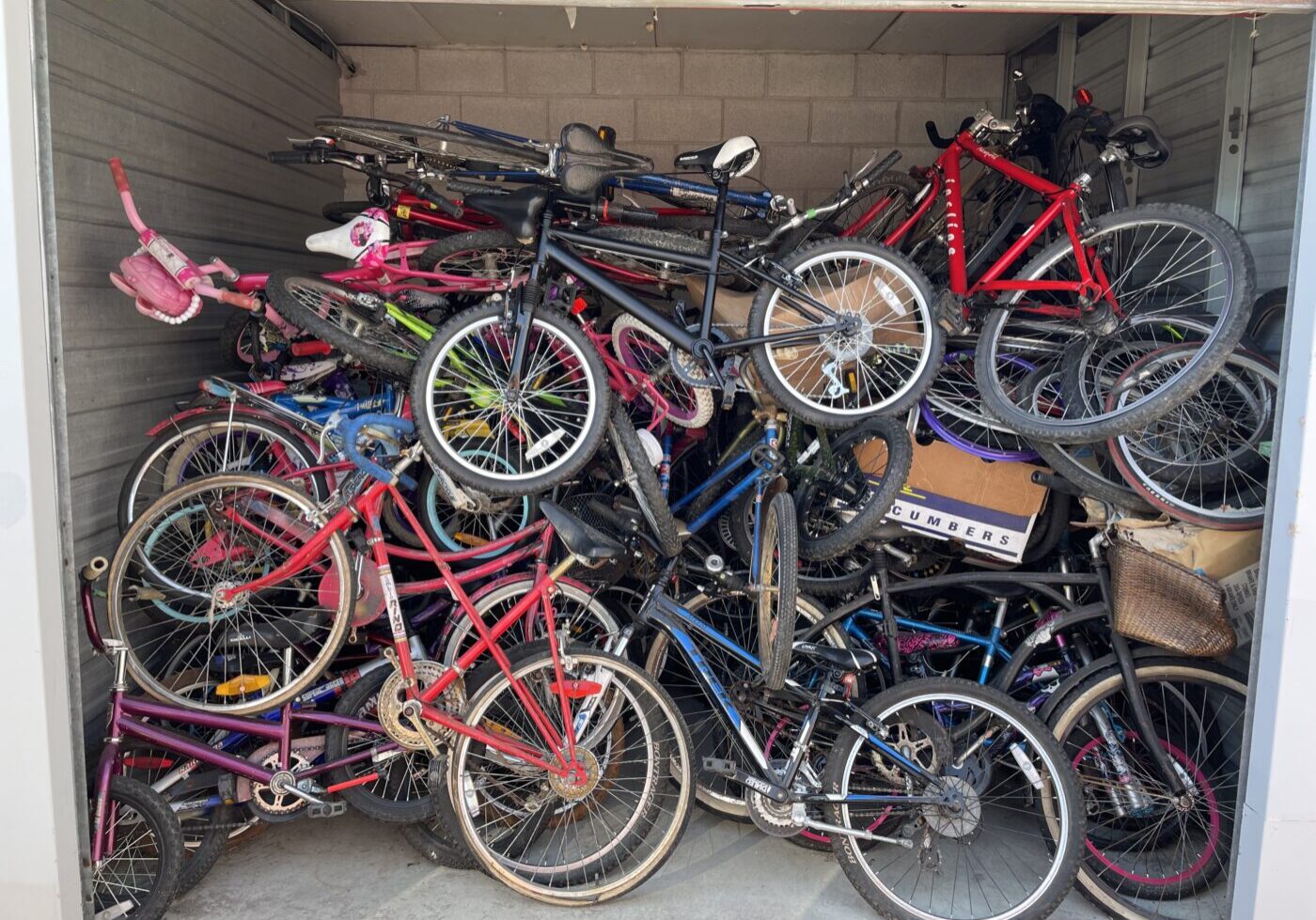
A garage filled with donated bikes from the local community.

"In Scarborough, there's a transport equity problem. We know that it's hard to get around,” says Marvin Macaraig, Scarborough Cycles coordinator and a health promoter with Access Alliance. “There's transportation deserts, the Scarborough RT no longer works and people are always looking for different ways to get around, trying to save some money."
Douglas Yardley, a long-time volunteer at Scarborough Cycles, got rid of his car in 1991 and now only uses his bike to get around. Safety is a big concern for him on Scarborough roads.
"On suburban streets, we tend to get higher speeds. We don't have as many bike lanes in Scarborough, and it can be dangerous sometimes,” Yardley explains. “We have fewer cyclists; some of them are afraid to ride on the road. We don't have a full bike network yet; we’re working on it.”
"Even though the need is greater, even though there are many households without cars here, some people are still not being encouraged to use bikes for transportation.”
He adds that a lack of biking infrastructure in Scarborough is a significant barrier. “It does give you a feeling that people who don't use cars are less important and don't really count.”
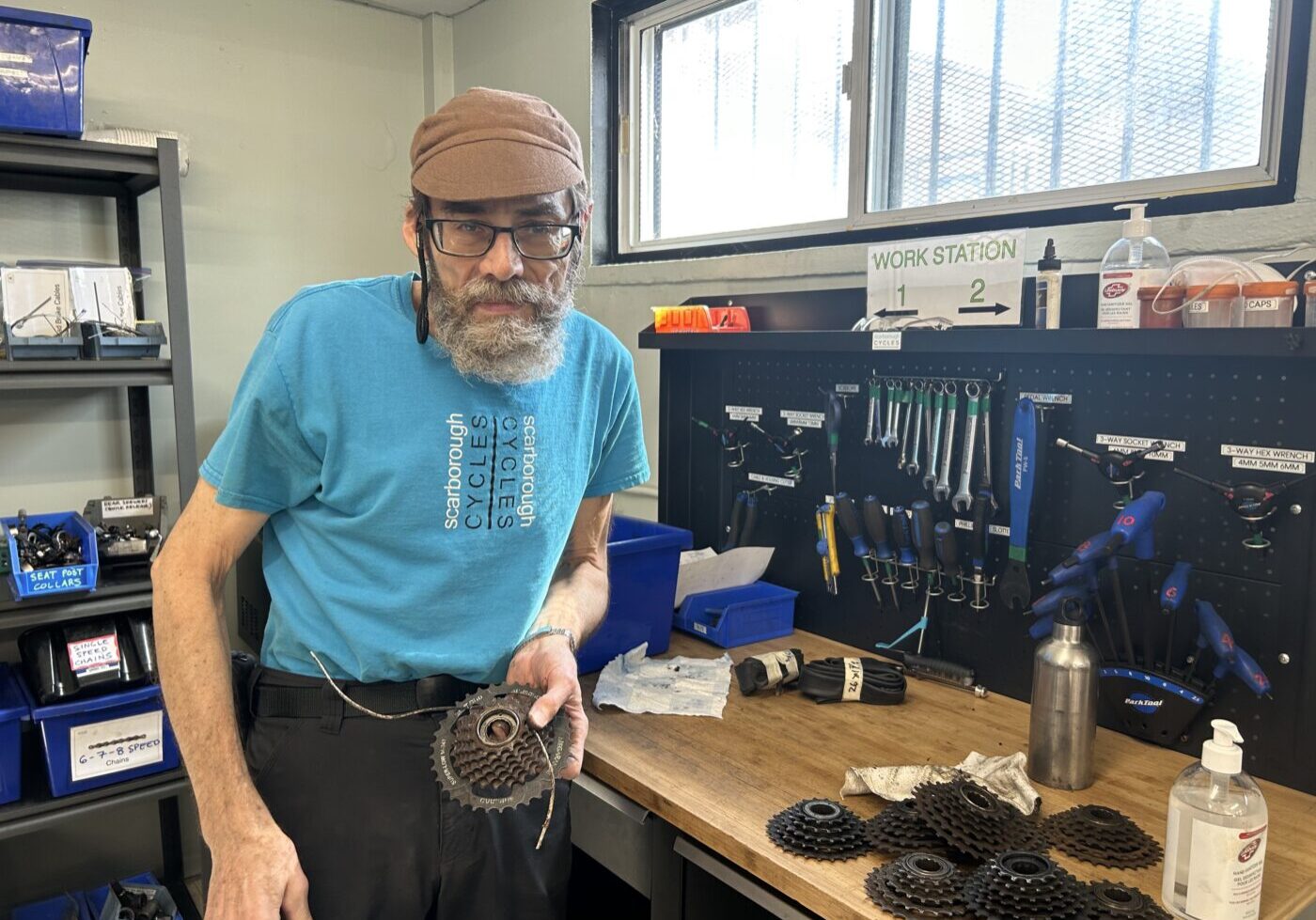
Douglas Yardley, volunteer at Scarborough Cycles stands in front of a work station at the Lawrence-Orton bike repair hub.

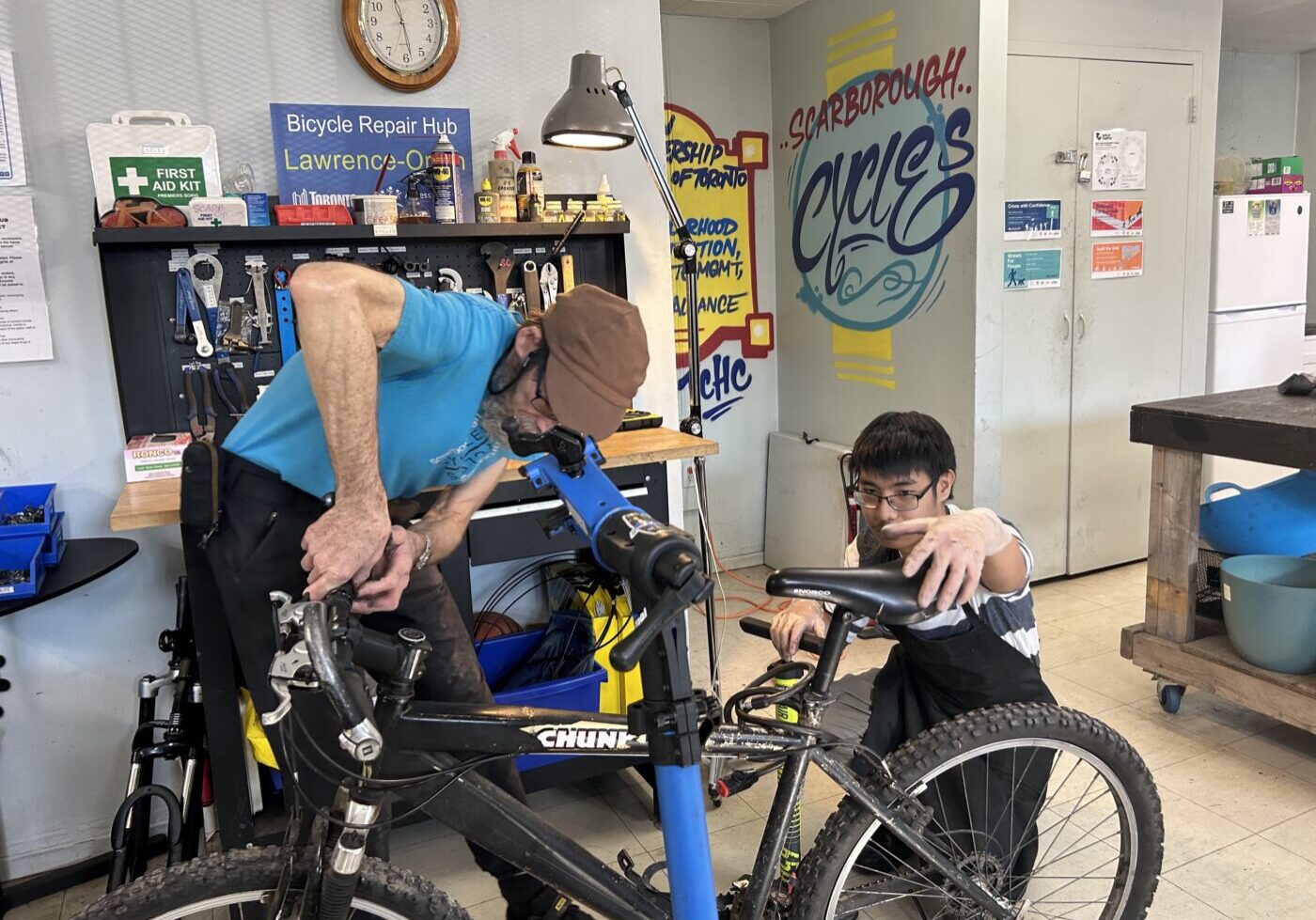
Scarborough Cycles volunteers repair a bike in the Lawrence-Orton bike hub.

Raktim Mitra, director and associate professor at Toronto Metropolitan University’s School of Urban and Regional Planning, supports a full bike network in Scarborough.
"If we just build a bicycle lane on a street, that may or may not be successful depending on how it is connected to the overall network of bicycling. It's the same as public transportation, right?” he explains. “So, you have to have a stronger core, which we are now beginning to have. And then from the core, we have to start branching out into other communities.”
Mitra believes taking a “systemic” approach to investing in local bike infrastructure is essential to creating a culture of bicycling in Scarborough. He cites cities like Amsterdam and Helskini as examples of success stories.
“If we go back into history in the 1960s and ‘70s, those cities used to be very, very car-centric, just like Toronto is today. But over the last 50 years, stronger advocacy and political support towards bicycling, along with significant investment in bicycling infrastructure, has helped them shift the culture of mobility, where bicycling is perhaps seen as a more viable transportation option than even driving in many contexts,” he says.
For his part, Macaraig wants Scarborough Cycles’ bike hub model to be brought to as many Toronto suburbs as possible, so biking beyond downtown will become the norm.
“We're trying to give people more options, and we know people ride in Scarborough. It's not a downtown thing,” he says.
Although there are many bike hubs downtown, Macaraig says there are very few in Toronto’s suburbs. Scarborough Cycles is the only hub in Scarborough.
“So this model is really important. It really, really achieves our long-term sustainability goals. It really makes our communities more resilient and stronger, and it gives people something to rally around," Macaraig explains.
“When you’re really embedded in the community, people will come.”
Fact-Check Yourself
Sources and
further reading
Don't take our word for it —
check our sources for yourself.
